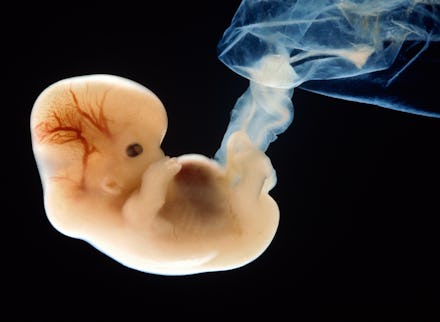British Scientists Can Now Genetically "Edit" Human Embryos

A medical research institute was just given permission to edit human embryos.
Last month, Dr. Kathy Niakan and her team at the Francis Crick Institute, a biomedical research institute in the United Kingdom, sought permission from the Human Fertilisation and Embryology Authority to edit our very earliest selves. Niakan's research would use CRISPR and Cas9 technology, a hugely popular method for increasingly precise genetic modification. Most of the research is centered around the first week of cell development, when a human fertilized egg goes from one cell to 250 cells.
Niakan's approval just came through: The HFEA ruled this week that the Crick team could perform its research, making it the first British research team with approval to use CRISPR on human embryos.
"We believe that this research could really lead to improvements in infertility treatment and ultimately provide us with a deeper understanding of the earliest stages of human life," Niakan told the BBC.
Niakan's proposal is to work on knocking out the OCT4 gene, a "master gene" that helps build pluripotent stem cells, or cells with multiple biological responses, which makes them able to turn into just about any kind of cell tissue. Niakan had already been studying OCT4 in mice, but the genes she wants to work with don't function the same way in mice as they do in humans.
The embryos being used would come from in vitro fertilization clinics, where they're left over from fertilization attempts. In the U.K., researchers can apply for licenses to perform embryo research as long as the embryos aren't put back into any living thing. For Niakan's research, that means destroying the embryos once they've reached that seven-day point.
"We would really like to understand the genes needed for a human embryo to develop successfully into a healthy baby," Niakan told the BBC. "The reason why it is so important is because miscarriages and infertility are extremely common, but they're not very well understood."
This might not lead to super babies — at least, not yet. But for Niakan, the medical community and the human race as a whole, this research could be the key to understanding how human beings form, and how to make miscarriages a thing of the past.